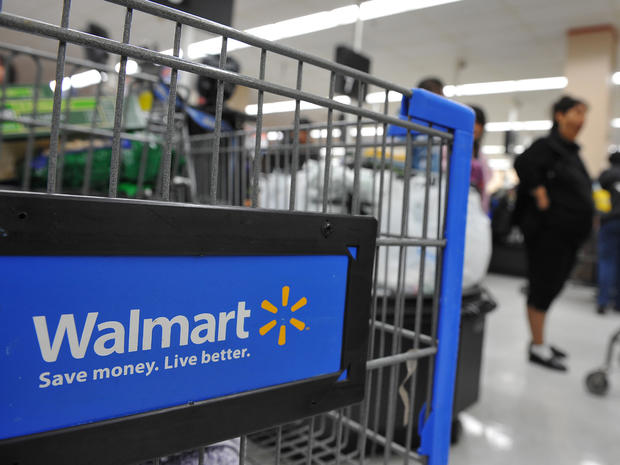Walmart's China syndrome: The loss of U.S. jobs
One of the economic themes of the last few decades has been the hollowing out of the American manufacturing sector. But how has that happened, and how is the world's largest retailer playing a part?
A new study from the left-leaning Economic Policy Institute takes a look at what it calls "the Walmart effect," by which it means the giant retailer's growing trade deficit with China. With Walmart (WMT) importing more cheap goods from China than it exports to that country, the retailer's actions may be implicated in an estimated loss of at least 400,000 U.S. jobs from 2001 to 2013, the study finds.
The issue isn't on Walmart's shoulders alone, of course, given that the total U.S. goods trade deficit with China amounted to $324.2 billion in 2013, of which Walmart represents a fraction of the imbalance. But with Walmart pledging to ramp up purchasing of U.S.-made goods in an effort to boost American manufacturing employment, the report raises questions about how far that pledge can go to offset a much bigger trade issue, and whether it's possible for American companies to bring back some of those lost jobs.
"Walmart has been making increasingly extensive claims it will support 'Made in America' efforts," said Robert E. Scott, the director of trade and manufacturing policy research at EPI. "Frankly the numbers are just tiny compared with reasonable estimates of the jobs displaced by Walmart's China trade."
Walmart, for its part, said in a statement that the EPI study is a "flawed economic analysis that assumes that imports equal job losses and does not take into consideration that countless jobs are added through the global supply chain, distribution and logistics, among other areas of the business."
Its pledge to buy American-made products will create 250,000 direct manufacturing jobs in the U.S., the retailer said, citing data from Boston Consulting Group.
Manufacturing jobs are the secret sauce to creating a strong middle class, especially among workers who lack college degrees. Employers paid workers in manufacturing jobs an average of almost $34 an hour in wages and benefits at the end of 2013, or a premium of almost 9 percent compared with all other jobs, according to the Manufacturing Institute, an affiliate of the National Association of Manufacturers.
But American manufacturing jobs have been gutted during the past four decades, falling from a high point in 1977 when the sector represented 22 percent of nonfarm payroll jobs to about 9 percent today, according to data from the Bureau of Labor Statistics.
Importing cheap goods from China is legal, of course, and Walmart shareholders could argue that the company is acting in the best interests of investors and its own employees: if it failed to take advantage of changes in global trade, then it could find itself displaced in a competitive retailing market. And many of those Chinese-made goods are produced by U.S. corporations with factories there.
Behind Walmart and other retailers' imports of Chinese goods is another, perhaps bigger, issue: the trade policies of both the U.S. and China.
"Walmart is responding to lots of faulty market signals that are being generated by China and other low-wage countries that are dominating world export markets," Scott said. "Chinese prices are not market prices. They manipulate their currency, and they offer massive subsidies" which keep their prices low.
"China is not playing fair," he said. "We have to encourage our members of Congress to get tough on China. We had a bipartisan policy of benign neglect of ignoring China's unfair trade practices."
To that end, Scott noted, Walmart is "playing a smart game" as they're taking advantage of the lower costs from China.
So what can consumers do about global trade imbalances? Put your money where your beliefs are, such as checking if a product carries a "Made in America" tag, and letting Walmart know that you want American-made merchandise, Scott said.
"If consumers let Walmart know they are looking for American-made goods, Walmart will pay attention," he said.
